Sunny Cyberpunk is not a bad thing, so don't worry about Cyberpunk 2077
Having divided fans of the genre across the world, the now infamously bright-and-colorful Cyberpunk 2077 E3 trailer left everybody asking, ‘OK, so can it be both sunny and cyberpunk?’ The definitive answer is: hell yes.

How do you spot a cyberpunk wearing cool shades on a sunny day? You don't. Cyberpunks don’t exist in sunny places.
Judging from the world's reaction to the recent Cyberpunk 2077 trailer, that's not even a joke. Apparently, the “real” cyberpunk fans really hate sunlight. It doesn't fit the genre somehow. It makes things look colorful, and generic, and retro, and GTA-ish, and everything BUT cyberpunk. Being a huge cyberpunk cRPGs fan myself, I couldn’t help but ask – how so? Every gamer should know that it was never exclusively about darkness and neons. Every gamer should know that in the right hands, “bright cyberpunk” can and should hope for a bright future. Especially if it also includes darkness.
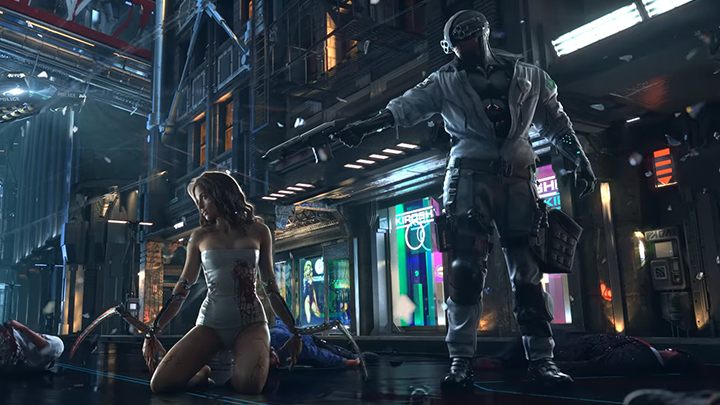
Main issue? Sky-high level of brightness
Now here’s a hard pill to swallow – cyberpunk, by no definition, has to be dark or sunless or brightless. And just before you disagree – see, when it comes to constructing cyberpunk, there are no more than a few real requirements that have to be met (and arguably at that). It has to do something with abrupt technological revolution which brought people to the point where body modifications became part of their everyday life. It has to deal with the future, and the more dystopic it is, the better. It should also describe a world in which the combination of technological advancement and absolute corporate rule brought society to the edge, whatever that edge is.
All in all, with the above taken into consideration, one could assume that cyberpunk itself has no strict, across-the-board definition. "Science fiction dealing with future urban societies dominated by computer technology", "science fiction featuring extensive human interaction with supercomputers and a punk ambiance", "a genre of science fiction set in a lawless subculture of an oppressive society dominated by computer technology" – all of this is cyberpunk. For some (like William Gibson, one of cyberpunk's forefathers pioneering the genre with his 1984 novel Neuromancer), neon-lit Japan is inherently cyberpunk. For others, "The Essential Cyberpunk" is not a book or a place, but rather a movie, such as 1982 Blade Runner. Some will say it's always dark and neony, while others will go, ‘whatever the weather, it's the silent minority versus the corporate majority that really lies in the cybernetic heart of the cyberpunk genre.’ Go figure.
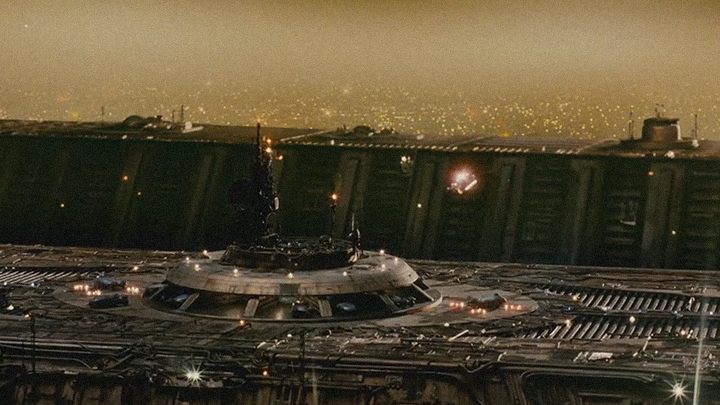
To make sense out of all this chaos, perhaps we should listen to Mike Pondsmith, the co-creator of Cyberpunk 2077, whose tabletop RPG Cyberpunk 2020 yielded the foundations for CD Projekt RED's upcoming blockbuster. No doubt he's the guy who knows his stuff. But even Pondsmith himself only lists 4 rules of cyberpunk (pretty vague and open to interpretation at that), and they go:
- Style over substance;
- Attitude is everything;
- Always take it to the edge;
- Break the rules.
Sure, there's always the famous line from the Cyberpunk 2020 manual that says, "[...] it always rains. Every day should be grim, gloomy and overcast. The stars never come out. The sun never shines. There are no singing birds, no laughing children," but then again, Pondsmith single-handedly called this premise off, responding to the critics of Cyberpunk 2077 trailer with, "ANYONE can make it dark and rainy and neony. We already knew we could do that. We wanted to prove that it can be the Dark Future ANY TIME OF DAY OR NIGHT." Say he brought the fans to the edge by breaking the rules – cyberpunk style.
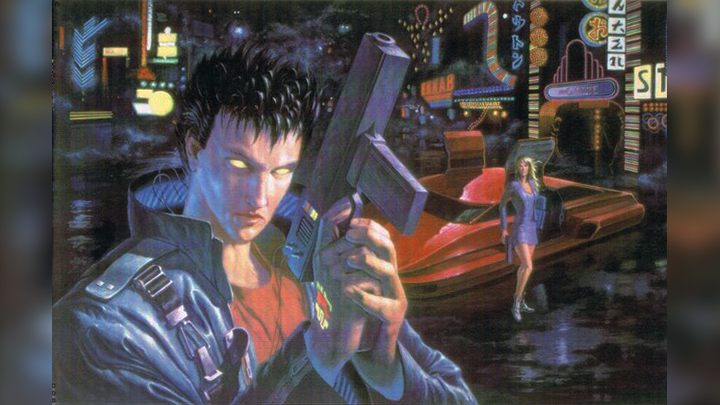
Boiled down to its essence, I'd say that cyberpunk's fundamental definition remains "high-tech, low-life." That's it. That's what you always begin with. No day-or-night dilemma in sight.
All the remaining tropes you’re probably familiar with – including the famous “always dark & rainy" motif – became iconic over time, either under the influence of books, movies, and tabletop games co-creating the universe, or because enough people judged that these ideas fit the vague definition. Which doesn't mean the definition itself cannot evolve. So while the neon-lit, noir-themed, always-dark-and-rainy cyberpunk landscape isn't necessarily canonic, it had enough charm in it to become iconic. Still, there is plenty of room left for the creators of new cyberpunk micro-universes. Each of these has the potential to surpass or replace the now-classic one, or at least "die trying," enriching the genre with fresh teeny ideas.
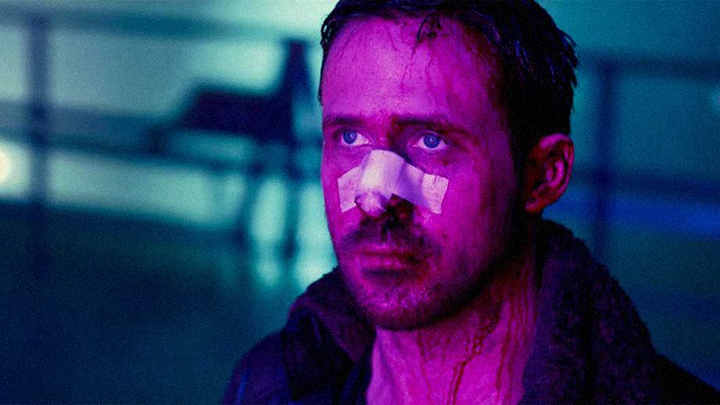
And so just to get this out of the way – cyberpunk is never only dark and neony. It's best if you got rid of this notion once and for all. It's never only Blade Runner-ish, either. But it's always "high-tech, low-life" (for life!). Rest assured, then, that Cyberpunk 2077 will most likely deliver a textbook take on cyberpunk itself, no matter how bright it or its trailers turn out to be. It actually has the potential to redefine the genre once again. All it has to do... is to handle its day-night cycle wisely. We could worry about the story or the gameplay, but hey, it's CD Projekt RED. If they knew how to unite cRPG-lovers from all over the world with The Witcher series, they sure as hell know how to carry both brightness and darkness into the cyberpunk definition.
Disagree again, fine, but now: here's a bunch of great games that painted their cyberpunk either bright or dark – and all of them did a spectacular job no matter the approach.
Ruiner, or the Hotline Punk-ami
Ruiner is dark. At the first glance, I thought it appeared like Hotline Miami-meets-3D. Upon sinking my teeth into it – that's when I tasted the gameplay – I thought I wasn't wrong. After all, Devlover published both games. But then it felt different, as if playing this punk of a protagonist, slaughtering cyber-juicers in bloody massacres, wasn't as much about experiencing the kill-die-restart cycle, but rather about soaking up the atmosphere. Enter more darkness than Hotline Miami could ever imagine, replace masks with body augmentations and upbeat 80s music with Squarepusher-esque moody compositions, and it becomes evident how everything Ruiner did was combining Hotline Miami's body (mechanics) with a gloomy cyberpunk soul. A soul that overall, makes it worth mentioning.
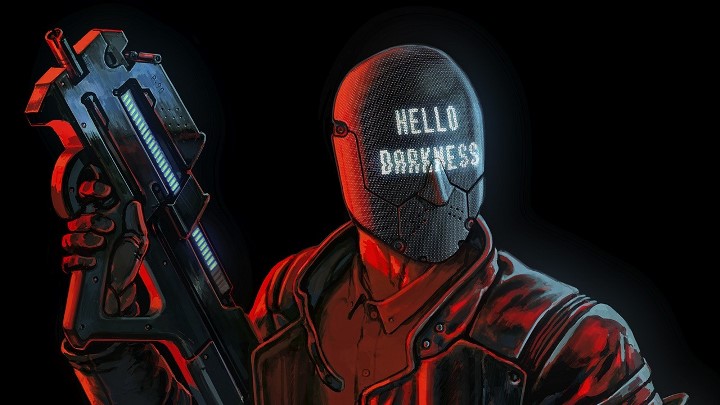
- cyberpunk shade: dark red
- genre: top-down shooter
- how sunny it is: the sun is dead (except for Heaven)
Is Ruiner low-life? Thematically – sure. The dystopian city-hub, Rengkok, screams low-life, with mad and broke augs around every corner, spray-painted walls, and cats nobody wants to pet, but everybody wants to... program. Gameplay-wise, though – hell no. Actually, the more lively your moves are, the better the chances of your survival. Freeze for a second and just like that, you're freezing forever – in a (neon-lit) mortuary refrigerator. The gameplay requires your constant attention, planning your actions, and a flawless execution of whatever tactic you come up with. Just be quick, and remember – it's all about that combo meter. The greater the intensity of the fight, the better. The more high-tech your body becomes with each upgrade, the more powerful you are when facing hordes of bloodthirsty and suicidal cyber-juicer-punks.
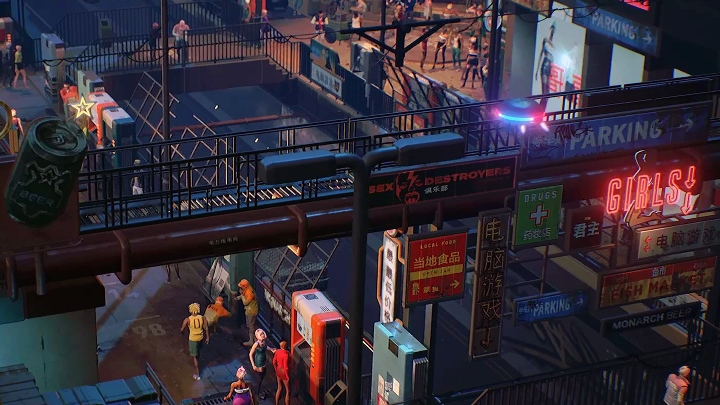
But then again, it was never the prospect of simply winning the fight and receiving a small reward that made me push forward. It was rather the recognition that after the conflict is solved, I will return to the technology-and-kanji-soaked Rengkok just to walk around, do a few push-ups in front of strangers, and maybe, just maybe, hum, 'Hello darkness, my old friend.' Ruiner knows how to handle its cyberpunk.
Remember Me, or the Eiffel Punk
DONTNOD may be focusing on telling the tale of 2 best friends – one of whom is an obvious punk – nowadays, but don't forget where the company comes from. In case you can't recall it, DONTNOD HQ is located in Paris, France. So was their first commercial project, Remember Me, which came down in history as a cyberpunk game – even though it features sun on many occasions. And lots of sun at that. And some rain, too, but not too much. Not that it has anything to do with the cyberpunk level within the game – it's just that rainy Paris is way less romantic than sunny Paris.
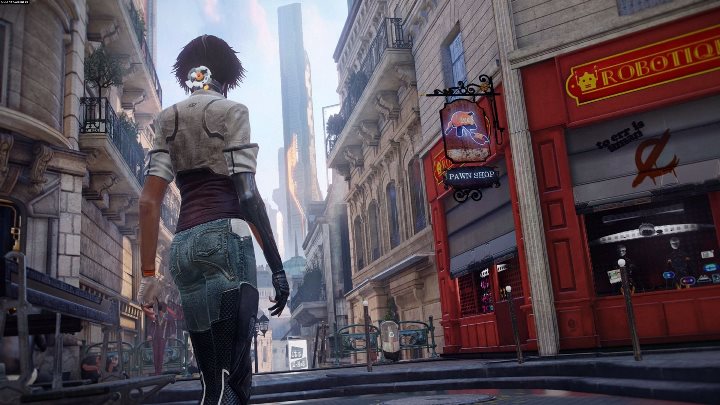
- cyberpunk shade: sky bright
- genre: action adventure
- how sunny it is: enough to get a tan
The "Remember Me" vision of 2084 Paris is also unforgettable. For me, mentioning the eclectic overtones materializing within the city in the form of luxury neighborhoods raised just next to torn down slums is enough to tick off the "low-life" box, but it extends beyond the metropolis itself. It's the people there who are the lowest form of all life. They allow their memories to be stored and their ideas to be shared by huge, relentless corporations. Even worse, it's this "high-tech" approach that made those people corporate slaves they are. More precisely, every French citizen uses a Sensen chip, which allows one's memories to be changed, deleted, stolen or… sold. In such environment, even the seemingly "unforgettable" Paris may in fact become forgotten in no time, as well as every romantic moment anybody spent in it.
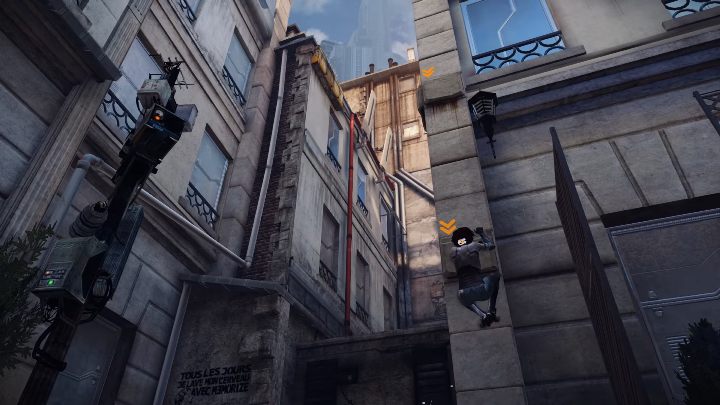
While visually stunning (one of the best takes on designing a cyberpunk future gaming has ever seen), Remember Me never pretty much made it to the canon. And no, it wasn’t the sun's fault. It was just that the gameplay fell flat, especially when compared with the thought-out setting and the phenomenal atmosphere. Still, if you're a cyberpunk freak like all the gamers nowadays appear to be, don't forget to check Remember Me out. It will once again prove you you that cyberpunk is cyberpunk – whatever the weather.
SOMA, or the Waterpunk
It's always better down where it's wetter? Not in this case. After a brief introduction taking place in sunny Canada, SOMA goes beLOW the sea level to face you with one of the most unconventional takes on cyberpunk the gaming world has ever seen.
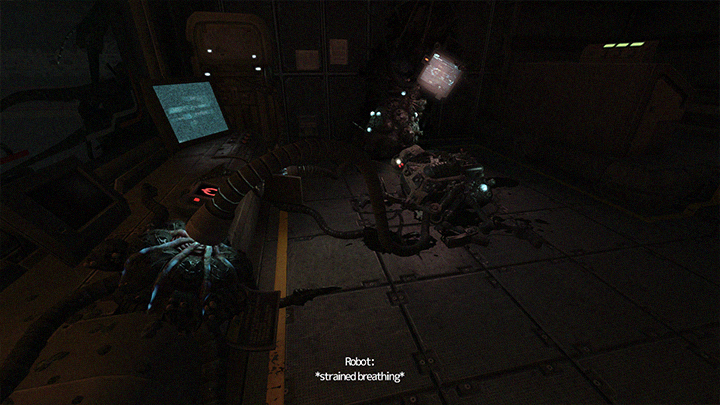
I would argue that SOMA's approach to the genre is what makes it so memorable. Its darkness manifests not only through the setting – the hostile and sinister PATHOS-II underwater research complex, dealing with Artificial Intelligence by asking deep metaphysical questions any augmented individual would likely ask himself: what's the difference between a person and a machine? How many body modifications it takes to make you less human? What is the meaning of consciousness, and ultimately – life itself? Don't expect an easy answer to any of them. You'll have to investigate them the hard way, sacrificing bits of your sanity one by one, up until the point where the ship of Theseus you boarded sinks in the ocean of thought-experiment-induced madness. It's almost as if Simon Garret, the protagonist, were not a cyberpunk, but rather a cyber-philosopher... punk.
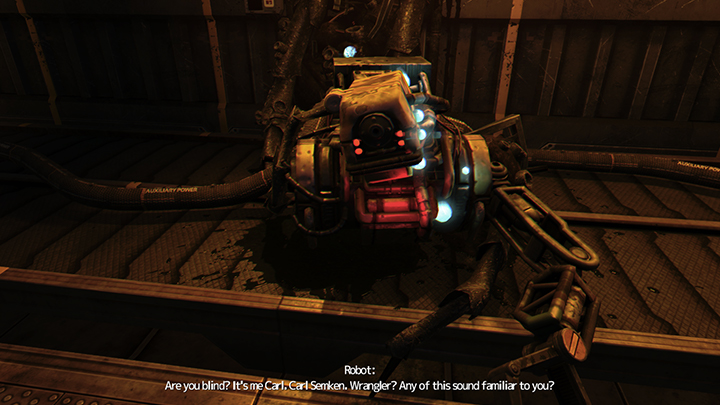
- cyberpunk shade: dark sea green
- genre: horror adventure
- how sunny it is: the sun is a lie
Meanwhile the cyberpunkish "high-tech, low-life" parts remain intertwined and untouched. And the extended version of both of them lies at the bottom of SOMA. PATHOS-II is not just high-tech – it is ALL-tech. If you don't believe me, ask those who inhabit the complex, or simply look at them. Also, forget about low-life and say hello to NO-life. This claim can once again be verified by those who lurk beneath – basically living humans, but with... a twist. All of this is taking cyberpunk to its extremes. Frictional Games cross and redefine the boundaries of the genre just like they reshaped the approach to horrors with the Amnesia series.
SOMA takes all of the darkness cyberpunk has to offer, cuts the neons out, and splashes it onto your face. If you thought living in the dystopian world on the surface of the Earth was a terrifying experience, just wait until you see what awaits you... under the sea. In waterpunk.
Deus Ex, or the Humanpunk
If you can't call Deus Ex cyberpunk, then... what can you call cyberpunk, right? But here's what you have to get over – a lot of Deus Ex is bathed in sunlight. Be it Human Revolution's Tai Yong Medical section or Mankind Divided's Prague-hub, the presence of sunrays is no exotic occurrence. Actually, the "classical" neony darkness is essentially traded here for more of a golden-dark look. This applies to Deus Ex on every level and manifests itself throughout the game, but miraculously, nobody ever tried to deny that Adam Jensen's adventures were inherently cyberpunk. Nobody ever asked for it, because again – what, then, could you call cyberpunk? And how would you justify Jensen wearing shades all the time?
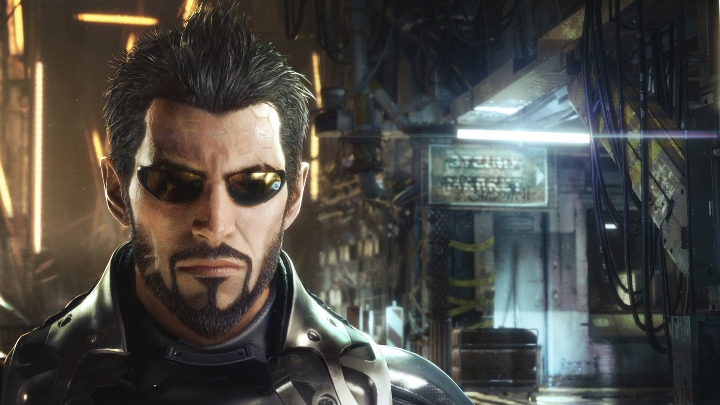
- cyberpunk shade: golden dark
- genre: RPG
- how sunny it is: could’ve been worse
I can hear the "high-tech, low-life" definition reverberating once again. In the world of Deus Ex's two latest installments, humans either begin a revolution (before they get divided) or get divided (following a revolution). The enemy is always the augmentations – or the "high-tech," if you wish. Body modifications act as drugs that bring an otherwise advanced and prosperous society to the brink of collapse. In this technology-dependent world, it seems like corporations are the stars, and the rest of humanity is just a supporting actor who should've left the scene long time ago. The very character of Jensen himself personifies this conflict. A human-turned-aug, he remains an outcast both in the eyes of his employers and the divided society, even though – play it again – he never asked for any of it. Both tragic and gripping, Jensen's tale remains quintessential to the development of the story and the narrative arc of the game, and trust me, with so much stuff on his plate, the last thing poor Adam would ask himself is, 'But isn't it a little too bright for proper cyberpunk?'.
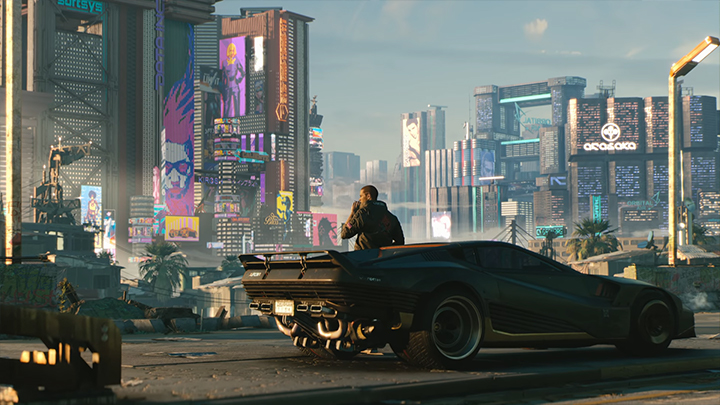
The promise for cyberpunk
You can create a great, compelling cyberpunk universe using the “whatever the weather” approach. As long as a game takes advantage of the “high-tech, low-life” paradigm, it is good to go – both ahead, and down in history as a shining example of how to do cyberpunk right. Stressing the importance of a believable character-driven story for creating a mature cyberpunk experience, I'd say that the Deus Ex series is the closest we have right now to actual Cyberpunk 2077. I don't just mean that they're both RPGs. It's more a matter of making a statement – a successful cyberpunk-themed RPG is not the one with the "nightiest" setting or the grimmest atmosphere. A successful cyberpunk-themed RPG – or any game, really – is the one that makes all the neons, darkness, rain, sun, fog and whatnot feel necessary, and justified by the story it wants to tell and the tools it deploys to develop it. This statement is so obvious it hurts, but after the criticism of Cyberpunk 2077 trailer saw the light of day, spelling it out it felt necessary.
Be a big dreamer. Let Cyberpunk 2077 surprise you. Realize that this game’s got a promise for the cyberpunk fans. And also, go get a tan.




